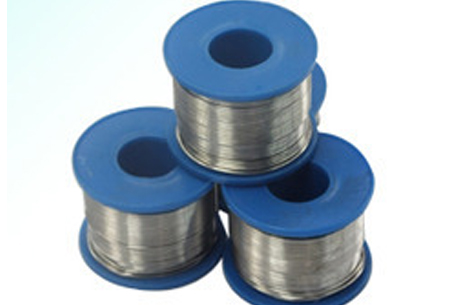
As a solder wire manufacturer, we understand the importance of providing high-quality products that meet the needs of our customers. Soldering is a crucial process in many industries, including electronics, automotive, and plumbing, and the quality of the solder wire can make a significant impact on the final product.
Soldering is a process of joining two pieces of metal by melting a metal alloy and then cooling it to form a bond. The solder is typically a mixture of tin and lead, although other metals can also be used. When the solder is melted, it wets the surfaces of the metal pieces and forms a strong bond as it cools and solidifies.
The process of soldering requires a heat source, such as a soldering iron or torch, and the solder wire. The solder wire is used to transfer the solder alloy to the joint, and it must be of high quality to ensure a successful bond.
The quality of the solder wire can affect the strength and durability of the joint. Poor quality solder wire can lead to weak bonds, which can cause the joint to fail under stress. In addition, low-quality solder wire can contain impurities that can cause problems during the soldering process. For example, impurities can cause the solder to melt at a higher temperature, making it difficult to work with.
Using high-quality solder wire is essential for ensuring the quality of the final product. When the joint is strong and durable, it can withstand the stresses of use, and the product will perform as intended. In addition, high-quality solder wire can make the soldering process easier and more efficient, saving time and money.
To ensure that your solder wire meets the highest standards of quality, there are several steps you can take:
Source high-quality materials: The quality of the solder wire depends on the quality of the materials used to make it. Be sure to source high-quality tin, lead, and other metals, as well as flux and other additives.
Use advanced manufacturing techniques: Modern manufacturing techniques, such as automated wire drawing and inline testing, can help ensure the quality of your solder wire. These techniques can detect defects and ensure consistency in the diameter and composition of the wire.
Conduct quality control testing: Regular testing of your solder wire can help detect any quality issues before they become a problem. Testing can include measuring the diameter and composition of the wire, as well as conducting strength and durability tests on the joints.
Work with experienced partners: Partnering with experienced suppliers, distributors, and customers can help ensure that your solder wire meets the highest standards. Experienced partners can provide valuable feedback on the quality of your products and help you identify areas for improvement.
Stay up to date with industry standards: Soldering industry standards, such as those published by the IPC (Association Connecting Electronics Industries), can provide guidance on the quality requirements for solder wire. Staying up to date with these standards can help ensure that your products meet the expectations of your customers.
As a solder wire manufacturer, it is essential to provide high-quality products that meet the needs of our customers. The quality of our solder wire can have a significant impact on the strength and durability of the joint, as well as the efficiency of the soldering process. By sourcing high-quality materials, using advanced manufacturing techniques, conducting quality control testing, working with experienced partners, and staying up to date with industry standards, we can ensure that our solder wire meets the highest standards of quality.
Quick Inquiry